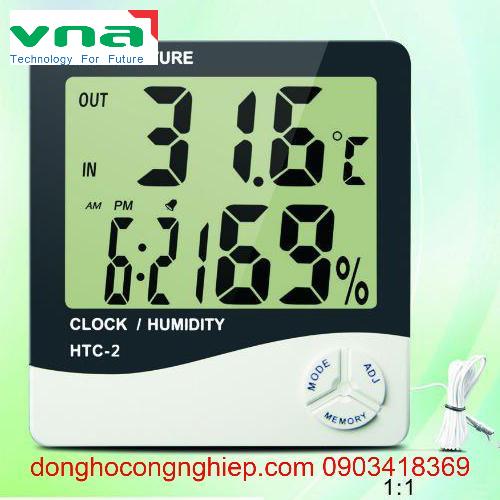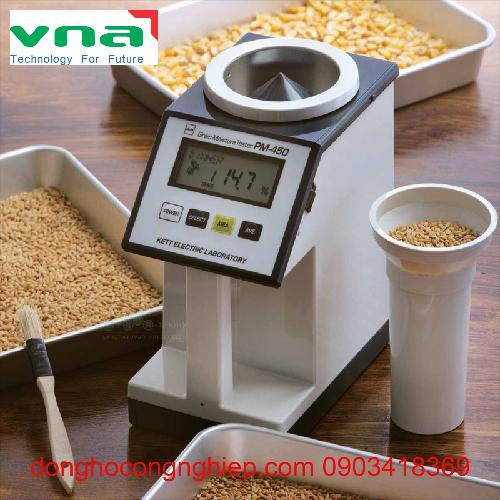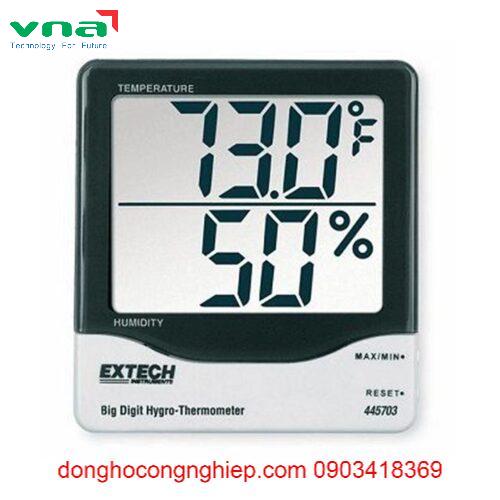Engineering Service
Things to note when choosing a humidity meter
A hygrometer is an important tool for measuring and controlling humidity meter in living and working environments. With the development of technology, moisture meters are increasingly widely used in many fields such as agriculture, industry, construction, healthcare, and scientific research.
What is a humidity meter?
- A hygrometer is a device used to measure the amount of water vapor in the air. Humidity is expressed as a percentage (%) or percentage (ppm) of the amount of water vapor compared to the maximum amount of water vapor that air can contain at the same temperature.
- Hygrometers usually have a display screen, which displays measured data and humidity-related parameters. Additionally, some hygrometers have the ability to record data over time, allowing users to monitor changes in humidity over a specific period of time.

Functions and applications of moisture meter
Moisture meters have many different functions and applications in different fields. Below are some common functions and applications of moisture meters:
Agriculture:
In the agricultural field, hygrometers are used to measure soil and air moisture. This helps farmers determine the amount of water needed for crops and manage irrigation effectively. Periodically measuring soil moisture also helps ensure plant growth and health.
Industry:
In industries, moisture meters are used to test the moisture content of materials such as wood, paper, fabric, and other construction materials. This helps ensure the quality and durability of the final product and avoids problems such as cracking, warping, or mold.
Environmental control:
Humidity meters are used to monitor and control the environment in areas such as cleanrooms, microbiology rooms, manufacturing plants, autoclave ovens, and many other applications. This helps ensure a stable and reliable environment for manufacturing, research, or medical processes.
Quality control in food and healthcare:
Moisture meters are used in the food and healthcare industry to check the moisture content of products such as food, pharmaceuticals, preservatives, and medical materials. This helps ensure the quality and safety of these products, preventing the growth of bacteria and mold.
Living and health conditions:
Hygrometers can be used in living and working areas to ensure a comfortable and healthy environment for people. Proper air humidity helps avoid dry skin, dry eyes, sore throat, and other respiratory problems. It can also help prevent the growth of bacteria, mold, and insects in living spaces.
Construction engineering:
In the construction field, moisture meters are used to test the moisture content of construction materials such as concrete, bricks, and cement. This helps ensure the material dries and hardens while avoiding excessive water absorption that can cause structural damage.
Science and research:
Hygrometers are also used in scientific and environmental studies to monitor the humidity of soil, air, and other natural environments. This helps to better understand natural processes, the impacts of climate change, and resource management.

Operating principle of humidity meter
There are many different types of moisture meters, each operating based on a different principle.
Mechanical moisture meter:
- This type of machine uses mechanical parts such as springs, metal, or human hair to measure humidity.
- When humidity changes, these mechanical parts will deform, causing the indicator needle on the watch face to move, displaying the humidity value.
- This type of machine has the advantage of being cheap and easy to use, but its accuracy is not high.
Electronic humidity meter:
This type of machine uses electronic sensors to measure humidity. These electronic sensors can operate based on many different principles, including:
- Capacitive sensor: Capacitive sensors operate on the principle of measuring the change in capacitance of a capacitor when humidity changes. When humidity increases, the capacitance of the capacitor also increases, and vice versa. This type of sensor has high accuracy and is commonly used in electronic humidity meters.
- Resistance sensor: Resistance sensors operate on the principle of measuring the change in resistance of a material when humidity changes. When humidity increases, the resistance of the material decreases, and vice versa. This type of sensor is cheap but the accuracy is not as high as capacitive sensors.
- Thermal sensor: Thermal sensors operate on the principle of measuring the change in temperature of a material when the humidity changes. When humidity increases, the temperature of the material decreases, and vice versa. This type of sensor can be used to measure humidity in high-temperature environments. This type of machine has the advantages of high accuracy, many features, and ease of use.
Dew point humidity meter:
- This type of machine operates on the principle of measuring the dew point temperature of air.
- The dew point is the temperature at which water vapor in the air begins to condense into water.
- When humidity increases, dew point also increases, and vice versa.
- This type of machine has high accuracy but is expensive and more complicated than other types of moisture meters.
Criteria to keep in mind when buying a humidity meter
To choose a standard and effective moisture meter, users need to pay attention to the following important criteria:

- Carefully study the technical specifications of the device to choose a model suitable for the usage environment
- Specific requirements for technical errors of the device: For residential temperature and humidity controllers, the acceptable error is ±5%. Production environments require high accuracy with an error of ±1%.
- Functions of the controller: auto-record mode, auto-save to memory, ability to automatically calculate average value, ability to measure environmental parameters.
- Choose a genuine moisture meter: Equipment with full CO, CQ certification, and a technical test table. The product is tested for accuracy by authorities. Buy temperature and humidity meters from reputable establishments, committed to quality and flexible warranty.
Vnatech is a reputable manufacturing address and accepts designs upon request.
Vnatech Company specializes in providing temperature and humidity control solutions and temperature and humidity monitoring. With a team of experienced engineers, we ensure product quality. Therefore, our products are highly appreciated and widely distributed nationwide.
Communications
VIETNAM TECHNOLOGY DEVELOPMENT AND TRANSFER JOINT STOCK COMPANY.
Office: VT09-BT02 – Xa La Urban Area – Ha Dong – Hanoi.
Tax code: 01 05 158 192
Home page: www.vnatech.com.vn
Website: http://donghocongnghiep.com/
Email: contact@vnatech.com.vn


